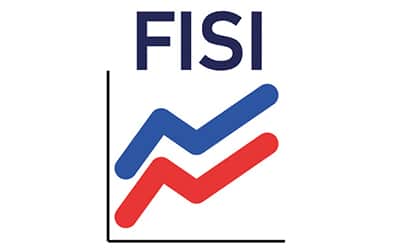European Foundry Industry Sentiment
The war in Ukraine creates considerable uncertainty, causing the FISI to drop in March. This is so far less related to a worsened assessment of current business situation but rather to pessimistic expectations for the upcoming six months.
European Foundry Industry Sentiment
The fact that the FISI in February reached its highest value since pre-Corona June has no significance in view of the Russian invasion of Ukraine. The promising data were collected before the outbreak of the war. The significant market disruptions and their impact on European foundries will become visible in the data in March.
Exploding energy prices and raw materials supply difficulties require transparency across the value chain
In deep empathy with the people in Ukraine and for the sake of the European peace order, CAEF stands behind the sanctions against Russia. However, the consequences for the European economy can only be borne, if there is an open dialogue between suppliers and customers.
European Foundry Industry Sentiment
The European foundries have left the difficut second half of the previous year behind for the time being. Although high energy prices and Russia’s aggressive behaviour continue to pose high risks for the European industry, European foundries from all material classes rate both the current business situation and the expectations for the next six months better than in the previous month. The latest easing of corona restrictions is predominantly welcomed.
European Foundry Industry Sentiment
After recent signs of a comprehensive slowdown, steel, iron and non-ferrous metal foundries assessed the current situation in December as significantly better than in the previous month. Expectations for the upcoming six months do not, however, take this selective assessment into account.
New CAEF president Chiara Danieli with full agenda in key year for European foundry industry
At the turn of the year, the CAEF presidency passed from Ignacio De la Peña to Chiara Danieli. In addition to the current challenges regarding the availability of raw materials and costs of energy, there is no lack of strategic demands she will have to push forward together with the CAEF General Secretariat and in close alignment with other European foundry associations.
European Foundry Industry Sentiment
While the assessment of the current business situation for non-ferrous metal foundries has already been deteriorating for months, a significant setback is now also setting in for iron foundries. Further rising costs for a variety of raw materials and energy are putting a great burden on foundries.
European Foundry Industry Sentiment
Continuing problems in the global supply chains and the related problems in the automotive industry in particular threaten to limit the recovery of the foundry industry and do not bode well for the first quarter of 2022. Meanwhile, the horrendous costs for raw materials and energy are causing tremendous difficulties in economic production for the energy-intensive foundry industry at the beginning of winter. This constellation is reflected in the sharpest month-to-month decline of the FISI since April 2020.
Raw Material and Energy Prices: Existential threat to the European Foundry Industry — Call for Bilateral Agreements
Prices for raw materials, energy and logistics have soared on a broad front while an increasing number of input factors is prone to run out of European stocks within the next weeks. Forwarding these unavoidable cost increases is however not taken for granted.
European Foundry Industry Sentiment
European foundries’ expectations for the next six months are under pressure. On the one hand, exploding raw material and energy costs have been accompanying the companies for months. On the other hand, in addition to the semiconductor crisis, the automotive industry could soon be confronted with shortages in the supply of magnesium and aluminium, just like many non-ferrous metal foundries.
